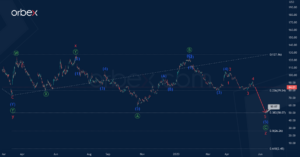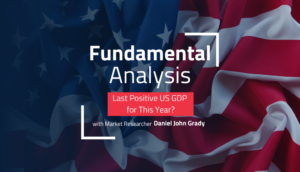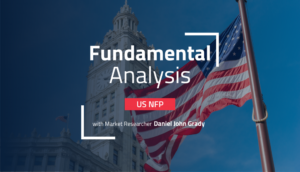China hit a couple of worrying milestones over the weekend, amidst a flurry of negative data from the world’s second-largest economy. The government has been trying to prop up the economy, but analysts and the market seem to be frustrated with measures that are being seen as insufficient.
In the latest move to confuse the markets, the PBOC cut its one-year lending rate by 10bps, but left the 5-year one unchanged. The short-term rate is seen helping inject liquidity into the market, but markets were expecting a cut to the long-term one as well. The housing market, which has been in crisis for more than a year now, relies more on the 5-year lending rate.
The really worrying signs
The PBOC’s measures came after the statistics agency disclosed that foreign direct investment (FDI) in the country fell by 4%. FDI flows fell to the lowest level in 25 years, suggesting that investors are very worried about the future of the Chinese economy. The last time FDI was that low, was when China was embroiled in the Asian Financial Crisis, the last time the country slipped into recession.
At the start of the week, the PBOC set the onshore yuan exchange rate lower, meaning a stronger yuan. Meanwhile, the market-driven offshore yuan exchange rate rose to the highest it’s been in 16 years against the greenback. That, also, coincides with a financial crunch: the 2007 sub-prime crisis. The offshore yuan weakened despite reports that Chinese state-owned banks were selling dollars in an effort to prop up the currency.
Going beyond China
Early Monday, Citigroup cut its estimates for China’s economic growth this year to 4.7% from 5.0%. That would be the first major analyst to formally expect the country to miss the government’s growth target for this year. Bloomberg compiled a report showing that a large number of state-owned property developers in China will report major losses this year. Meaning that the real estate industry’s problems are far from over.
China’s flagging economy naturally causes concern among commodity currencies that rely on Chinese demand to prop up their exports. Australia has seen iron ore prices fall almost 6% over the last month. Forecasts that China’s economic growth would fuel demand for crude above supply and push prices higher are now looking shaky.
What kind of risk are we looking at?
China, of course, imports more than just raw materials and could have a bigger impact beyond commodities. Japan and Germany are major exporters of machinery to China. The former is entering uncharted territory as inflation has remained above the BOJ’s target, and slowing exports to its largest trade partner could affect the growth outlook. That could severely hamper the BOJ if it needs to start tightening and support the yen.
Germany, as the largest economy in the Eurozone, barely escaped a technical recession. A drop in Chinese demand could tip the shared economy back into stagnation, making it harder for the ECB to keep tightening in order to bring inflation down. This could put the Euro under increased pressure against the pound and particularly the dollar. A major slowdown in China could end up benefiting the dollar the most, as traders keep coming back to the greenback as a safe haven.
Trading the news requires access to extensive market research - and that's what we do best.
- SEO Powered Content & PR Distribution. Get Amplified Today.
- PlatoData.Network Vertical Generative Ai. Empower Yourself. Access Here.
- PlatoAiStream. Web3 Intelligence. Knowledge Amplified. Access Here.
- PlatoESG. Automotive / EVs, Carbon, CleanTech, Energy, Environment, Solar, Waste Management. Access Here.
- PlatoHealth. Biotech and Clinical Trials Intelligence. Access Here.
- ChartPrime. Elevate your Trading Game with ChartPrime. Access Here.
- BlockOffsets. Modernizing Environmental Offset Ownership. Access Here.
- Source: https://www.orbex.com/blog/en/2023/08/china-crash-how-worried-forex-traders-should-be
- :has
- :is
- $UP
- 16
- 25
- a
- About
- above
- access
- affect
- After
- against
- agency
- also
- amidst
- among
- an
- analyst
- Analysts
- and
- app
- ARE
- AS
- asian
- At
- Australia
- back
- Banks
- BE
- been
- being
- benefiting
- BEST
- Beyond
- bigger
- Blog
- Bloomberg
- boj
- bring
- but
- by
- came
- causes
- China
- Chinas
- chinese
- Citigroup
- coming
- Commodities
- commodity
- Concern
- could
- country
- Couple
- course
- Crash
- crisis
- crude
- crunch
- currencies
- Currency
- Cut
- data
- Demand
- Despite
- developers
- direct
- do
- Dollar
- dollars
- down
- Drop
- ECB
- Economic
- Economic growth
- economy
- effort
- end
- entering
- estate
- estimates
- Ether (ETH)
- Euro
- Eurozone
- exchange
- Exchange rate
- expect
- expecting
- exports
- extensive
- Fall
- far
- financial
- financial crisis
- First
- Flows
- For
- forecasts
- foreign
- forex
- Forex Trading
- Formally
- Former
- from
- frustrated
- Fuel
- future
- Germany
- Government
- Greenback
- Growth
- harder
- Have
- helping
- higher
- highest
- Hit
- housing
- housing market
- How
- HTTPS
- if
- image
- Impact
- imports
- in
- increased
- industry’s
- inflation
- inject
- into
- investment
- Investors
- IT
- ITS
- Japan
- just
- Keep
- Kind
- large
- largest
- Last
- latest
- left
- lending
- Level
- Liquidity
- live
- long-term
- looking
- losses
- Low
- lower
- lowest
- lowest level
- machinery
- major
- Making
- Market
- market research
- Markets
- materials
- meaning
- Meanwhile
- measures
- Milestones
- Mobile
- Mobile app
- Monday
- Month
- more
- most
- move
- needs
- negative
- news
- now
- number
- of
- on
- ONE
- order
- Outlook
- over
- particularly
- partner
- PBOC
- plato
- Plato Data Intelligence
- PlatoData
- pound
- pressure
- Prices
- problems
- property
- Push
- put
- Rate
- Raw
- real
- real estate
- really
- recession
- rely
- remained
- report
- Reports
- requires
- research
- Risk
- ROSE
- s
- safe
- Safe Haven
- second-largest
- seem
- seen
- Selling
- set
- severely
- shared
- short-term
- should
- showing
- Slowdown
- Slowing
- STAGNATION
- start
- state-owned
- statistics
- stronger
- supply
- support
- Target
- Technical
- territory
- than
- that
- The
- The Future
- their
- this
- this year
- tightening
- time
- tip
- to
- trade
- Traders
- Trading
- under
- URL
- very
- was
- we
- week
- weekend
- WELL
- were
- What
- when
- which
- will
- with
- world’s
- worried
- would
- year
- years
- Yen
- Yuan
- zephyrnet













